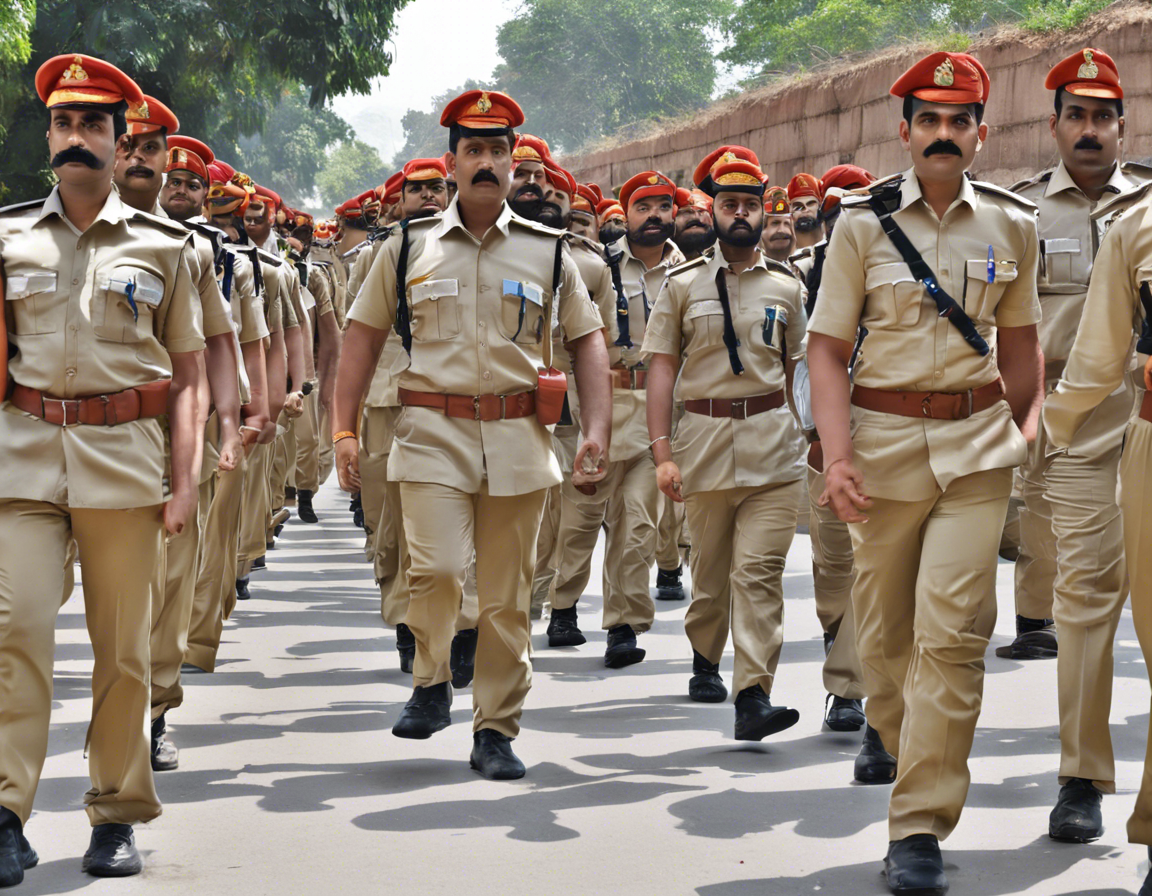
Introduction
In 2023, India Reserve Battalion General Duty Constable recruitment has seen significant trends and changes. These trends mainly revolve around the selection process, eligibility criteria, application methods, and the overall competition level. Understanding these trends can help aspiring candidates better prepare for the recruitment process and increase their chances of securing a position as a GD Constable within the IRB.
Changes in Selection Process
One of the notable trends in the 2023 IRB GD Constable recruitment is the evolution of the selection process. The selection process now often includes multiple stages, such as a written examination, physical efficiency test (PET), physical standard test (PST), and medical examination. Each stage is designed to assess different aspects of the candidates’ skills and capabilities, ensuring that only the most suitable candidates are selected for the position.
Increasing Competition Level
Another trend that has been observed in the 2023 recruitment is the rising competition level. With more and more candidates applying for limited vacancies, the competition for a GD Constable position has become increasingly fierce. As a result, candidates need to enhance their preparation and performance in each stage of the selection process to stand out among the crowd.
Changes in Eligibility Criteria
The eligibility criteria for the 2023 IRB GD Constable recruitment have also witnessed some changes. These changes may include variations in age limits, educational qualifications, physical standards, and nationality requirements. Candidates must carefully review and fulfill all the eligibility criteria to ensure their application is not rejected at any stage of the recruitment process.
Emphasis on Physical Fitness
Physical fitness has always been a crucial aspect of the selection process for GD Constable positions within the IRB. However, in the 2023 recruitment, there is a noticeable emphasis on physical fitness, with the PET and PST becoming increasingly challenging. Candidates are expected to meet specific physical standards to qualify for the next stage of the recruitment process.
Use of Technology in Application Process
The 2023 recruitment process has also seen a significant shift towards the use of technology in the application process. Candidates are now required to submit their applications online through the official website of the recruiting agency. This shift has made the application process more accessible and streamlined, ensuring efficient handling of a large number of applications.
Preparation Tips for Aspiring Candidates
– Understand the Selection Process: Familiarize yourself with the various stages of the selection process and prepare accordingly.
– Focus on Physical Fitness: Dedicate time to improving your physical fitness to meet the required standards.
– Stay Informed: Keep yourself updated on any changes or updates regarding the recruitment process.
– Practice Previous Year Question Papers: Solve previous year question papers to understand the exam pattern and types of questions asked.
– Seek Guidance: Consider seeking guidance from experienced candidates or coaching institutes to enhance your preparation.
FAQs (Frequently Asked Questions)
1. What is the minimum educational qualification required for the IRB GD Constable recruitment?
– Candidates must have passed 10th or 12th standard from a recognized board or institution.
2. Is there any relaxation in age limits for reserved category candidates?
– Yes, there is relaxation in age limits for candidates belonging to SC/ST/OBC categories as per government regulations.
3. Can female candidates apply for the GD Constable position in IRB?
– Yes, both male and female candidates are eligible to apply for the GD Constable position.
4. How can I prepare for the PET and PST stages of the selection process?
– To prepare for the PET and PST, focus on regular physical exercise, running, and endurance training to meet the required standards.
5. Are there any specific documents required during the application process?
– Yes, candidates are required to submit documents such as educational certificates, identity proof, caste certificate (if applicable), and other relevant documents as specified in the official notification.
6. What is the typical salary range for an IRB GD Constable?
– The salary for an IRB GD Constable usually falls within the pay scale of Rs. 21,700 – Rs. 69,100 per month, along with other allowances.
7. Is there any negative marking in the written examination?
– It varies from recruitment to recruitment, so candidates are advised to check the official notification for specific details about the examination pattern.
8. What are the career growth opportunities for GD Constables within the IRB?
– GD Constables can advance to higher positions such as Head Constable, Assistant Sub-Inspector, Sub-Inspector, and other ranks through departmental exams and promotions.
9. How can I stay updated on upcoming IRB GD Constable recruitments?
– Regularly check the official website of the concerned recruiting agency and subscribe to job alert notifications for timely updates on recruitment notifications.
10. What are the common reasons for application rejection in IRB GD Constable recruitment?
– Application rejection may occur due to incomplete information, failure to meet eligibility criteria, submission of false documents, or discrepancies in the application form.
Conclusion
The 2023 IRB GD Constable recruitment trends indicate a growing focus on rigorous selection processes, increased competition, and the importance of physical fitness. Aspiring candidates must stay updated on these trends, understand the evolving requirements, and adequately prepare to enhance their chances of success in securing a GD Constable position within the IRB. By following the provided preparation tips and guidelines, candidates can navigate through the recruitment process effectively and position themselves as strong contenders for the coveted role.
